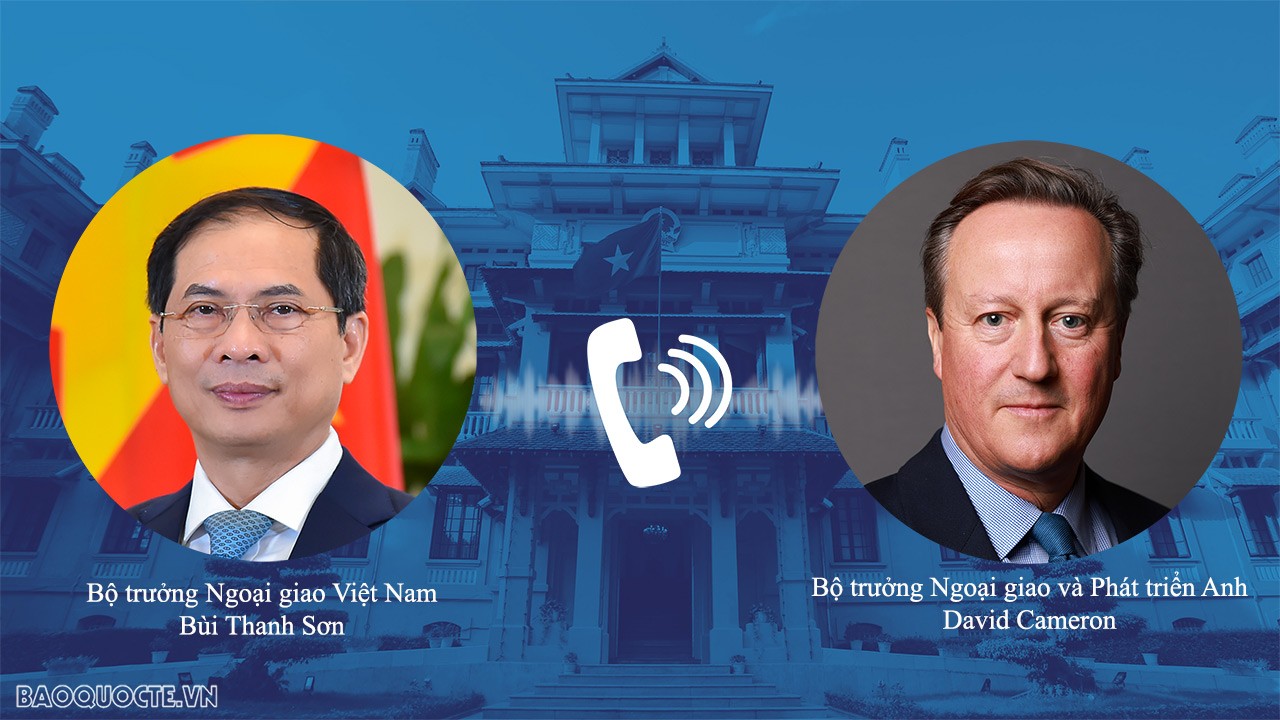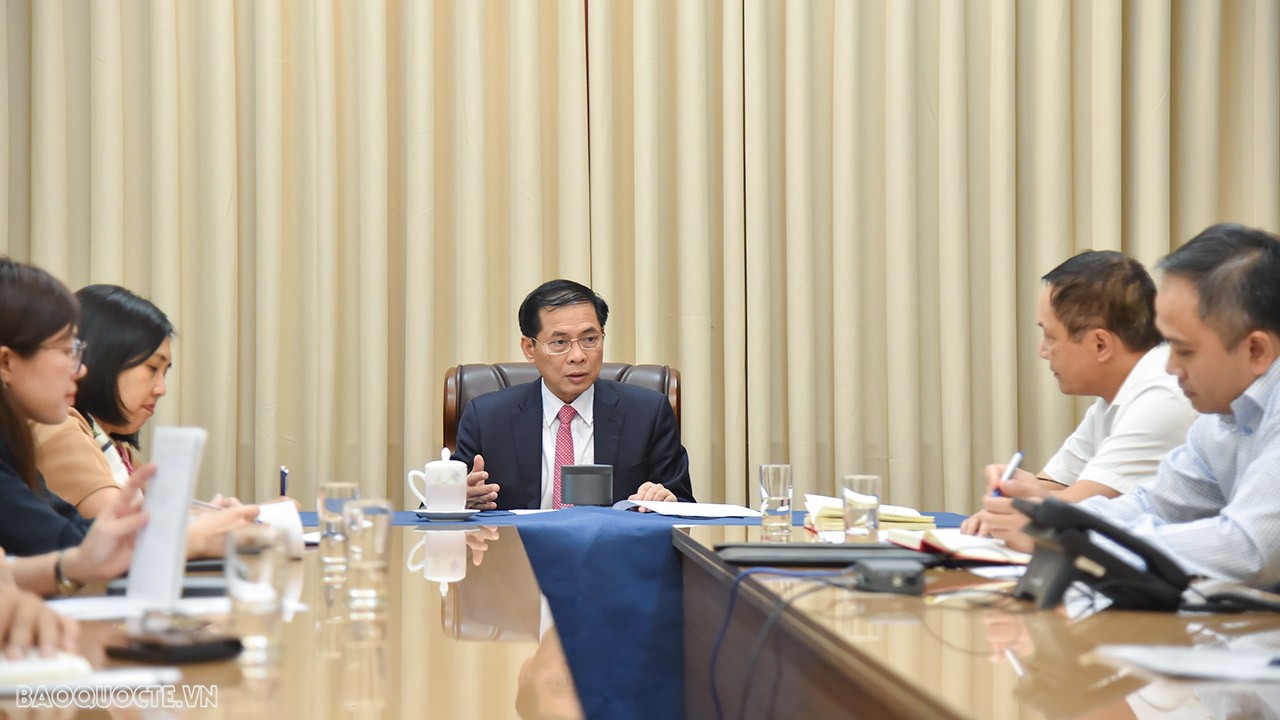
Vietnam, UK deepen strategic partnership: Foreign Ministerial phone talks
Latest
 |
| Foreign Minister Bui Thanh Son and UK Secretary of State for Foreign, Commonwealth and Development Affairs David Cameron held their phone talks on May 10, 2024. (Photo: Tuan Anh). |
The two sides concurred that the two countries need to continue enhancing exchanges of delegations, particularly those at high level, make effective use of existing cooperative mechanisms such as strategic dialogue, defence policy dialogue, and Joint Economic and Trade Committee (JETCO), building and implementing the Vietnam – UK action plan during 2024-2026, and supporting each other at regional and multilateral organisations and forums.
Regarding economic cooperation, Foreign Minister Son affirmed that Vietnam supports the UK’s accession to the Comprehensive and Progressive Agreement for Trans-Pacific Partnership (CPTTPP), believing that this is a new locomotive for the two countries to boost cooperation across trade and investment as well as regional economic connectivity.
They agreed to continue fully and effectively carrying out the UK-Vietnam Free Trade Agreement, contributing to the economic development goals of each nation.
 |
| Foreign Minister Bui Thanh Son stressed that Vietnam, as the coordinator of the ASEAN-UK relations during 2024-2027, will work to promote practical collaboration between the two sides. (Photo: Tuan Anh) |
Speaking highly of the cooperative outcomes over the past time, UK Secretary of State Cameron affirmed that the UK attaches much importance to enhancing the strategic partnership with Vietnam.
He said that the UK will continue its support for Vietnam in sustainable economic development, and suggested both nations strengthen bonds in immigration control and prevention of illegal immigration.
Foreign Minister Son stressed that Vietnam, as the coordinator of the ASEAN-UK relations during 2024-2027, will work to promote practical collaboration between the two sides.
Regarding the East Sea issue, the two sides affirmed support for maintaining peace, stability, freedom of navigation and overflight, and handling disputes at the waters via peaceful means and based on international laws, including the UN Convention on the Law of the Sea (UNCLOS) 1982.









